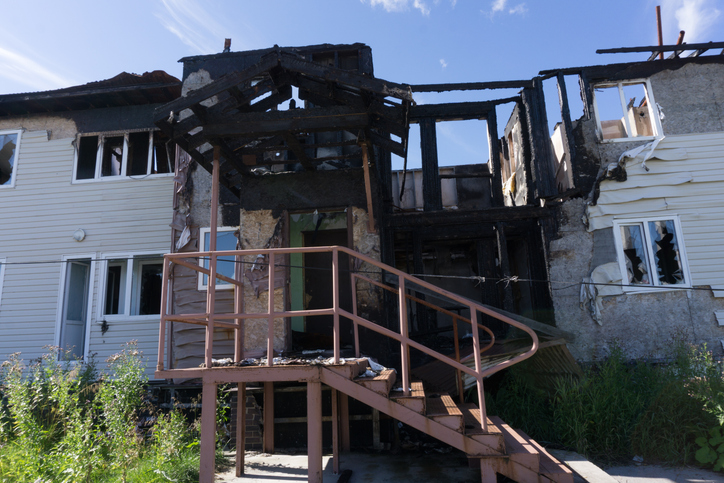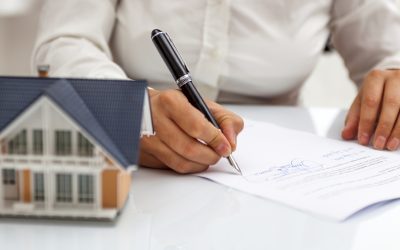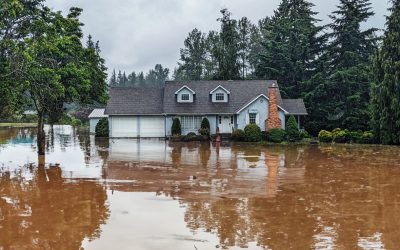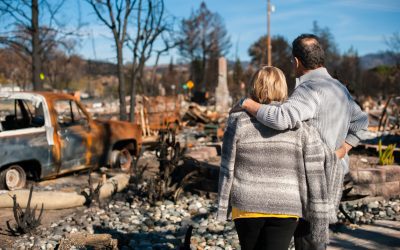Understanding Fire Damage Legal Liability for Property Owners
Fire incidents can devastate properties, leaving owners to manage not only the physical destruction but also the legal and financial complexities that follow. Understanding fire damage legal liability is essential for navigating these challenges effectively. Liability in fire damage cases can arise from several factors, including negligence, code violations, or failure to maintain safe conditions. Whether you’re a homeowner, landlord, or business owner, knowing your responsibilities and rights can make a significant difference in mitigating legal risks and securing adequate compensation.
Legal liability may involve scenarios where the fire originated due to negligence, such as improperly maintained electrical systems, failure to comply with fire safety regulations, or careless actions leading to an accidental blaze. In such cases, property owners may be held accountable for damages, injuries, or losses incurred by others. Additionally, tenants or neighboring properties affected by the fire may pursue claims, further complicating the situation.
In these situations, engaging a fire damage claim attorney is crucial. A skilled attorney can assess your liability, help you understand your legal obligations, and defend against unwarranted claims. They can also work alongside fire damage adjusters to ensure you receive a fair settlement from your insurance company, covering not only repair costs but also liability-related expenses.
Fire damage adjusters and attorneys often work in tandem to evaluate the extent of the damage and negotiate with insurance providers. While adjusters focus on accurately documenting losses and securing settlements, attorneys address potential legal disputes, ensuring compliance with local laws and shielding you from fire damage legal liability.
Whether you’re dealing with a personal property claim or liability concerns stemming from a fire, having an attorney specializing in fire damage legal liability can provide the guidance and advocacy you need. Protect your rights, understand your obligations, and secure a resolution that minimizes stress and maximizes recovery.
Understanding Fire Damage Legal Liability
What is Fire Damage Legal Liability?
Fire damage legal liability refers to the legal responsibilities and potential financial obligations property owners face when a fire occurs on their property. This liability can arise from a variety of scenarios, including negligence, failure to adhere to building codes, or inadequate maintenance of safety systems. For instance, if a fire starts due to faulty wiring that wasn’t properly inspected or maintained, the property owner could be held legally accountable for any resulting damages or injuries.
Negligence is one of the most common factors leading to fire damage liability. This can include leaving flammable materials near heat sources, neglecting to install or maintain smoke detectors, or failing to repair known electrical issues. Violations of building codes or fire safety regulations—such as improper exits, lack of sprinkler systems, or failure to meet fire resistance standards—can also expose property owners to liability claims.
Understanding and addressing these risks is critical for property owners to mitigate their exposure. Regular inspections, adherence to safety protocols, and compliance with local fire codes can reduce the chances of being held liable. Additionally, ensuring proper insurance coverage and consulting with a fire damage claim attorney can help protect against financial and legal repercussions in the aftermath of a fire.
Common Sources of Fire Damage Legal Liability
- Negligence: Property owners may be held liable if it is proven that their negligence led to the fire. This includes failing to install or maintain smoke detectors, improper storage of flammable materials, or not adhering to electrical safety standards.
- Building Code Violations: Ignoring local building codes and safety regulations can result in liability if such violations contribute to the cause or spread of a fire.
- Tenant Responsibilities: In rental properties, landlords might be held liable for fires caused by tenants if it is found that the landlord did not take adequate measures to ensure the property’s safety.
Mitigating Fire Damage Legal Liability
To reduce potential fire damage legal liability, property owners should:
- Regularly inspect and maintain fire safety equipment.
- Ensure compliance with all local building codes and safety regulations.
- Educate tenants on fire safety practices.
- Obtain comprehensive insurance coverage that includes fire damage.
The Role of Fire Damage Adjusters
Who is a Fire Damage Adjuster?
A fire damage adjuster is a professional who plays a critical role in helping property owners recover after a fire incident. Their primary responsibility is to assess the extent of damage caused by the fire and provide a detailed evaluation to help property owners determine the appropriate compensation from their insurance company. Fire damage adjusters act as mediators between policyholders and insurers, ensuring that claims are handled fairly and accurately.
When a fire occurs, the damage can range from structural issues and smoke contamination to destroyed personal belongings. A fire damage adjuster inspects the property thoroughly, documenting all losses and estimating repair or replacement costs. This includes assessing hidden damages, such as water damage from firefighting efforts or smoke residue that can compromise air quality and materials.
Their expertise is invaluable in navigating the complexities of insurance policies. Insurance companies often attempt to minimize payouts, but a skilled adjuster ensures that all damages are accounted for and properly valued.
Fire damage adjusters also assist with claim documentation, ensuring that the required forms, photos, and evidence are submitted correctly. By working with a professional, property owners can avoid delays or disputes in the claims process, securing the compensation needed to rebuild and recover efficiently.
How Fire Damage Adjusters Help
- Damage Assessment: They meticulously evaluate the property to document the damage and estimate repair costs.
- Claim Preparation: Adjusters assist in preparing the necessary documentation to file your claim.
- Negotiation: They negotiate with insurance companies to ensure property owners receive fair compensation.
Engaging a Fire Damage Attorney
Why You Need a Fire Damage Attorney
In complex fire damage cases, involving a fire damage attorney can be crucial for achieving a favorable outcome. These legal professionals specialize in fire-related cases and provide valuable guidance in navigating the intricate legal landscape. They assist property owners by addressing liability concerns, disputing denied claims, and ensuring compliance with insurance policy terms. With their expertise, attorneys can also negotiate directly with insurance companies to secure fair compensation, handle disputes arising from third-party claims, and protect property owners from being held unfairly responsible for damages or injuries caused by the fire. Their role ensures both legal and financial protections for affected parties.
Roles and Responsibilities
- Legal Representation: A fire damage attorney represents property owners in court if disputes arise regarding liability or insurance claims.
- Expert Advice: They provide expert legal advice on how to handle liability issues and claim processes.
- Negotiation and Settlement: Attorneys negotiate with insurance companies and other parties to ensure a fair settlement.
Filing Your Fire Damage Claim
Steps to File Your Claim
Filing a fire damage claim involves several critical steps to ensure you receive fair compensation for your losses. Following these steps thoroughly can streamline the process and help you avoid common pitfalls.
1. Document the Damage
Take detailed photographs and videos of all affected areas and items as soon as it is safe to do so. Capture images of structural damage, smoke-stained walls, water-soaked materials, and destroyed belongings. Make sure to include close-ups of heavily damaged areas as well as wide-angle shots to provide context. Create an inventory of damaged items, noting their approximate value, age, and condition before the fire. Proper documentation is essential for a successful claim and ensures the insurance company has a complete picture of your losses.
2. Contact Your Insurance Company
Notify your insurance company about the fire as soon as possible to initiate the claims process. Provide them with the basic details of the incident, including the time, date, and cause of the fire, if known. Many policies require prompt reporting to remain valid, so acting quickly is crucial. Once the claim is opened, follow their instructions for submitting documentation and scheduling inspections. Be prepared to communicate frequently with your insurer to address any questions or additional requests.
3. Hire a Public Adjuster
Engaging a Public Adjuster Orlando, FL, or one from your local area, can greatly benefit the claims process. Public adjusters work exclusively for you, not the insurance company, to ensure that your claim is accurately documented and fully valued. They are skilled in identifying hidden damages, negotiating with insurance adjusters, and avoiding lowball settlement offers. With their expertise, they can save you time, reduce stress, and help you secure the maximum payout under your policy.
4. Consult a Fire Damage Claim Attorney
Seek legal advice from a fire damage claim attorney to ensure your rights are protected throughout the claims process. Attorneys specializing in fire damage cases can help resolve disputes, address liability concerns, and advocate for fair treatment from your insurance company. They can also assist with reviewing policy terms, filing appeals for denied claims, and handling legal issues involving third parties affected by the fire. Having an attorney on your side ensures that both your financial and legal interests are safeguarded.
Common Challenges in Fire Damage Restoration Claims
- Underestimation of Damage: Insurance companies might undervalue the damage, leading to inadequate compensation.
- Delays in Processing: The claim process can be slow, causing delays in repairs and restoration.
- Disputes Over Liability: Determining who is responsible for the fire can lead to legal disputes.
Fire Damage Restoration Claims
Fire damage restoration claims go beyond addressing the obvious visible destruction caused by a fire. They encompass a comprehensive approach to restoring a property to its pre-fire condition, considering the full scope of damage. While repairing charred structures and replacing burned materials are essential, it’s equally important to address less visible but equally significant issues, such as smoke damage, compromised structural integrity, and water damage resulting from firefighting efforts.
Smoke damage, for instance, can penetrate walls, ceilings, and ventilation systems, leaving harmful residues and persistent odors that require professional cleaning and deodorization. Water damage from fire suppression can lead to mold growth, warped materials, and weakened foundations, further complicating the restoration process. Ignoring these underlying issues can lead to long-term problems, increased repair costs, and diminished property value.
When filing fire damage restoration claims, property owners should ensure that their insurance policies cover comprehensive restoration. This includes assessments for structural safety, smoke remediation, water extraction, and mold prevention. A detailed claim helps prevent disputes and ensures adequate compensation to cover all necessary repairs.
Working with Public Adjuster Orlando
For property owners in Orlando dealing with fire damage restoration claims, hiring a Public Adjuster Orlando can significantly enhance the process. Unlike insurance adjusters who work for the insurance company, public adjusters are independent professionals who advocate solely for the property owner. Their role is to ensure that every detail of the damage is documented and that the insurance claim accounts for the full cost of restoration, leaving no stone unturned.
Public adjusters bring valuable expertise to the table. They are skilled at identifying overlooked damages, such as hidden smoke residue or water infiltration that may compromise the property’s safety and livability. They also handle the time-consuming process of gathering evidence, preparing detailed reports, and negotiating with the insurance company.
By working with a public adjuster, Orlando property owners can maximize their compensation, reduce stress, and expedite the claims process. Whether dealing with extensive fire damage or the associated challenges of smoke and water damage, a public adjuster ensures that the insurance company provides the payout necessary to restore the property fully and efficiently. This level of professional support can make a significant difference in achieving a fair and timely resolution for fire damage restoration claims.
Conclusion
Understanding fire damage legal liability is crucial for property owners to safeguard themselves from potential legal and financial consequences after a fire. Liability can arise from various factors, such as negligence, safety violations, or disputes with third parties. Having a clear understanding of your responsibilities and rights is the first step in minimizing risks and ensuring a smooth recovery process.
Engaging professionals like fire damage adjusters and fire damage attorneys can be invaluable in navigating the complexities of fire damage claims. Fire damage adjusters assess the full extent of the loss, ensuring that your claim reflects all visible and hidden damages, such as structural issues, smoke residue, and water damage from firefighting efforts. On the other hand, fire damage attorneys provide essential legal guidance, helping property owners address liability concerns, resolve disputes, and secure fair compensation. Their expertise ensures compliance with safety standards, policy requirements, and local regulations, giving you peace of mind during a challenging time.
Taking proactive steps to mitigate risks, such as maintaining proper safety measures and keeping detailed records of your property’s condition, can help minimize complications during the claims process. Comprehensive documentation of damages, supported by expert evaluations, strengthens your case and reduces the likelihood of disputes with insurance companies.
In conclusion, managing fire damage legal liability effectively requires a combination of preparation, knowledge, and professional support. Proactively addressing risks, thoroughly documenting damages, and seeking assistance from professionals like fire damage adjusters and attorneys are key strategies for protecting your financial and legal interests. Being well-informed and prepared can make all the difference when dealing with the aftermath of a fire.



